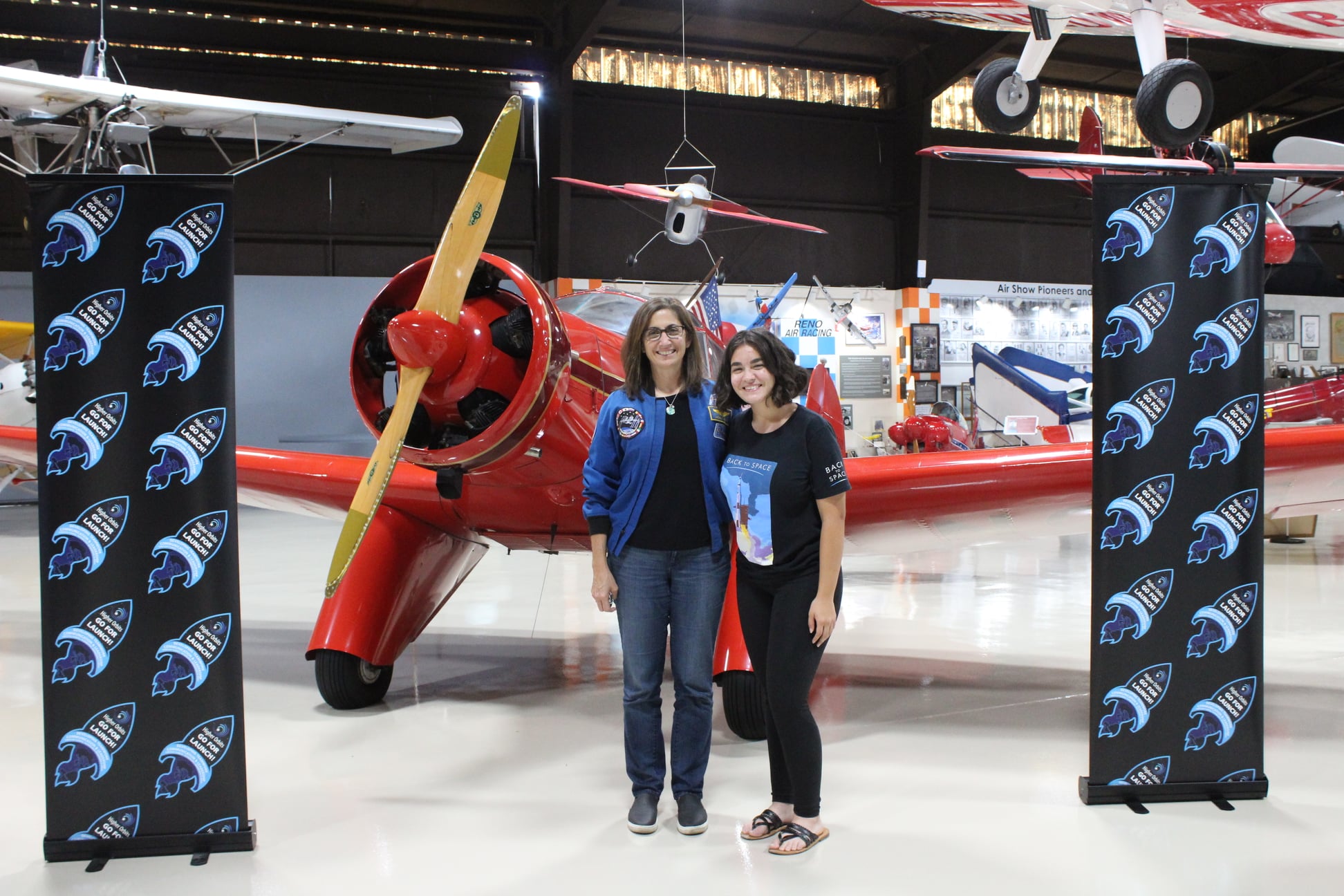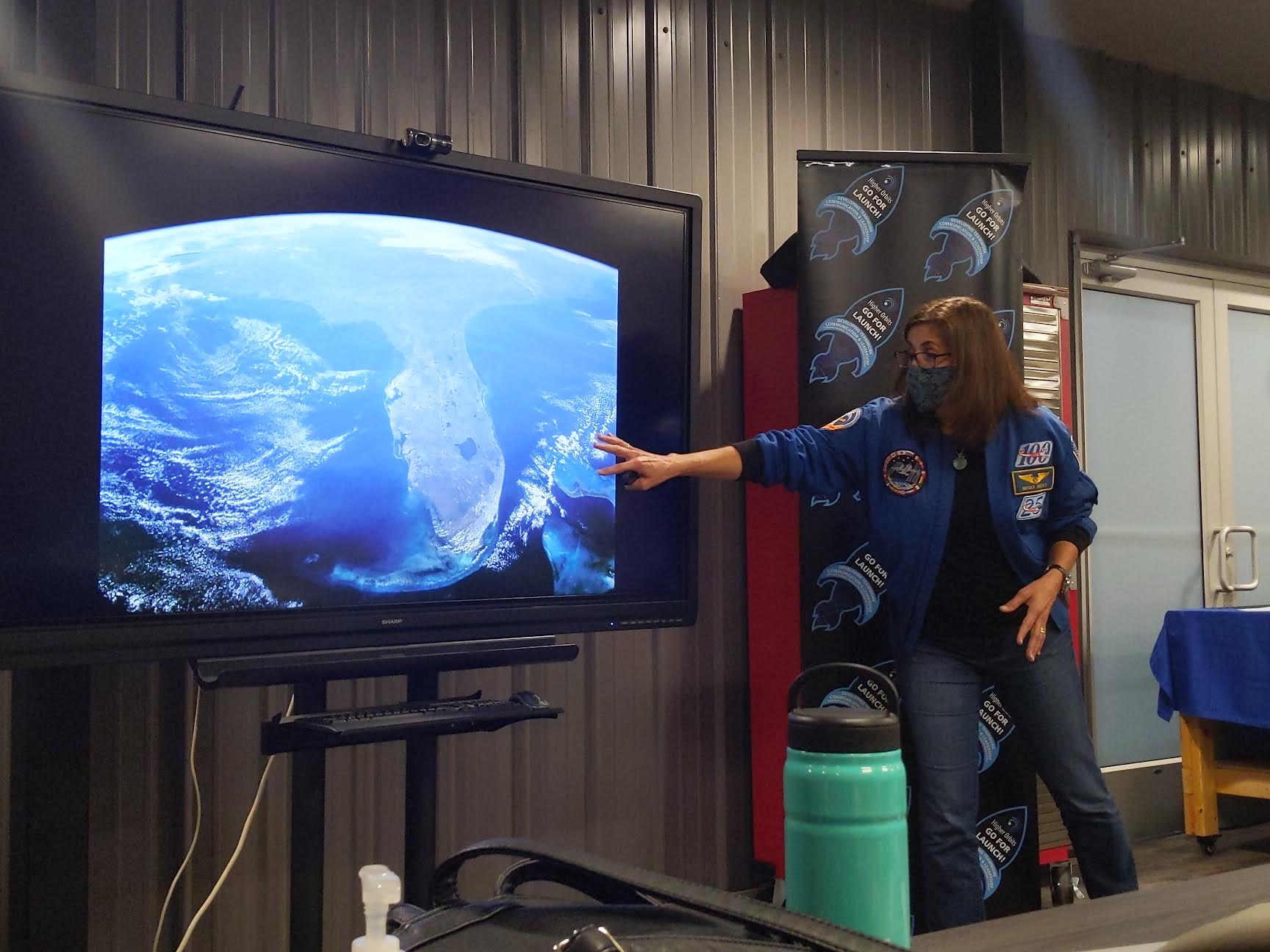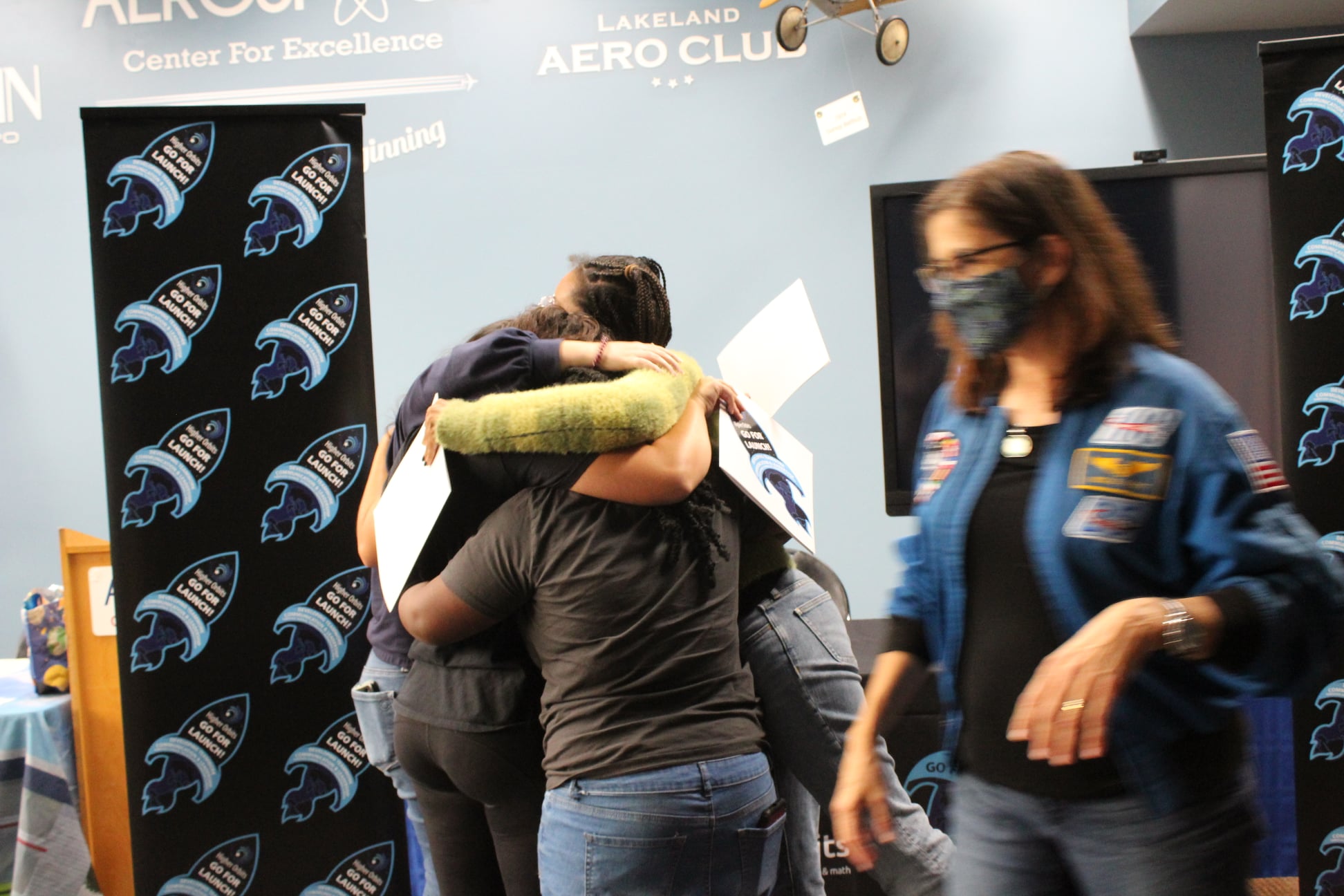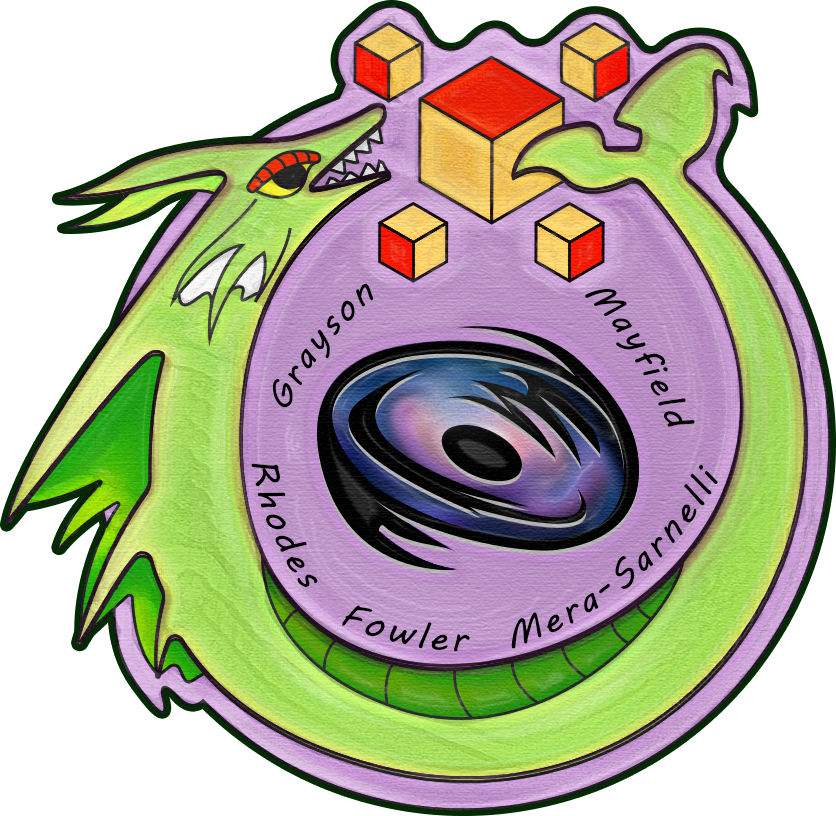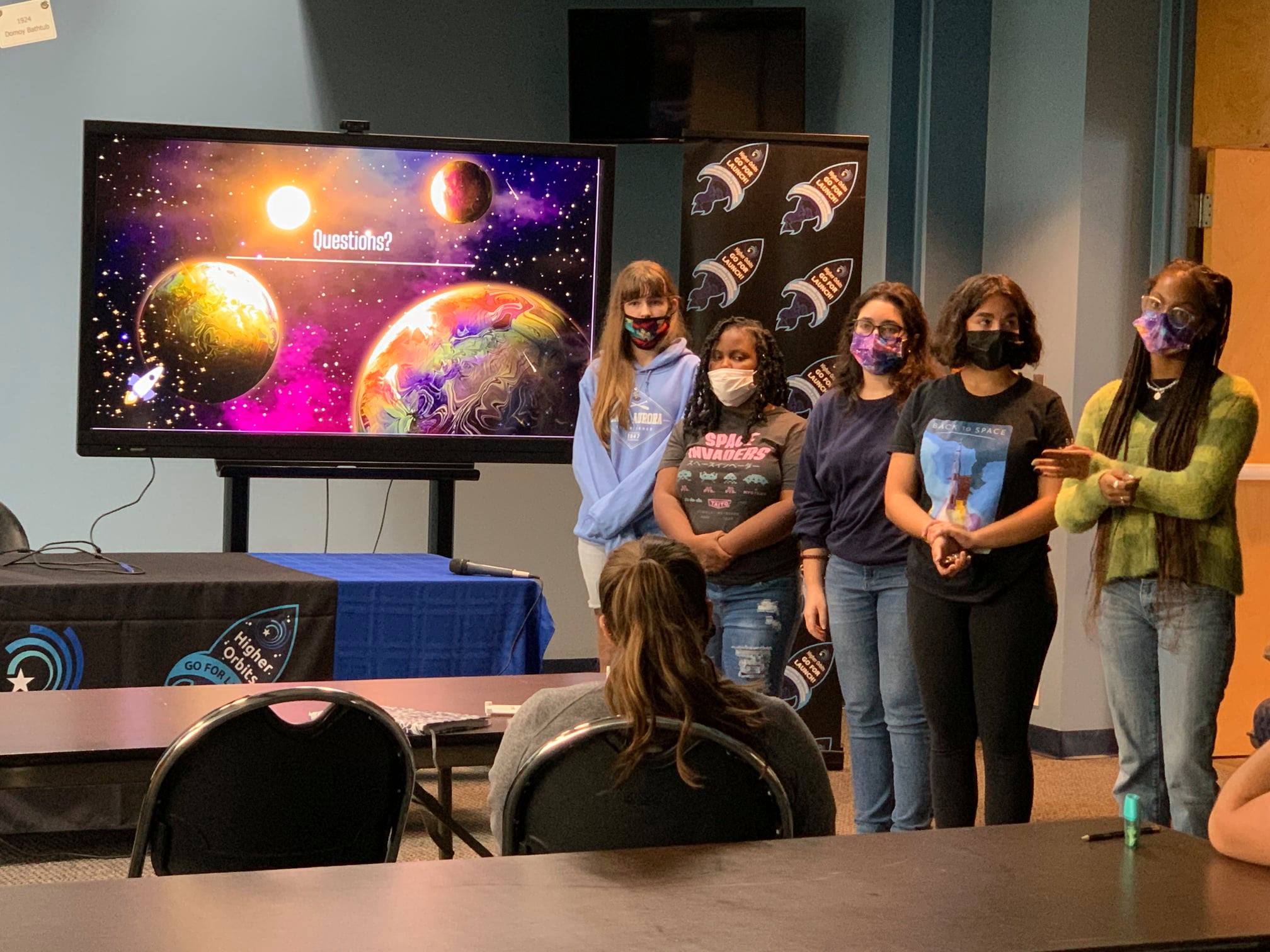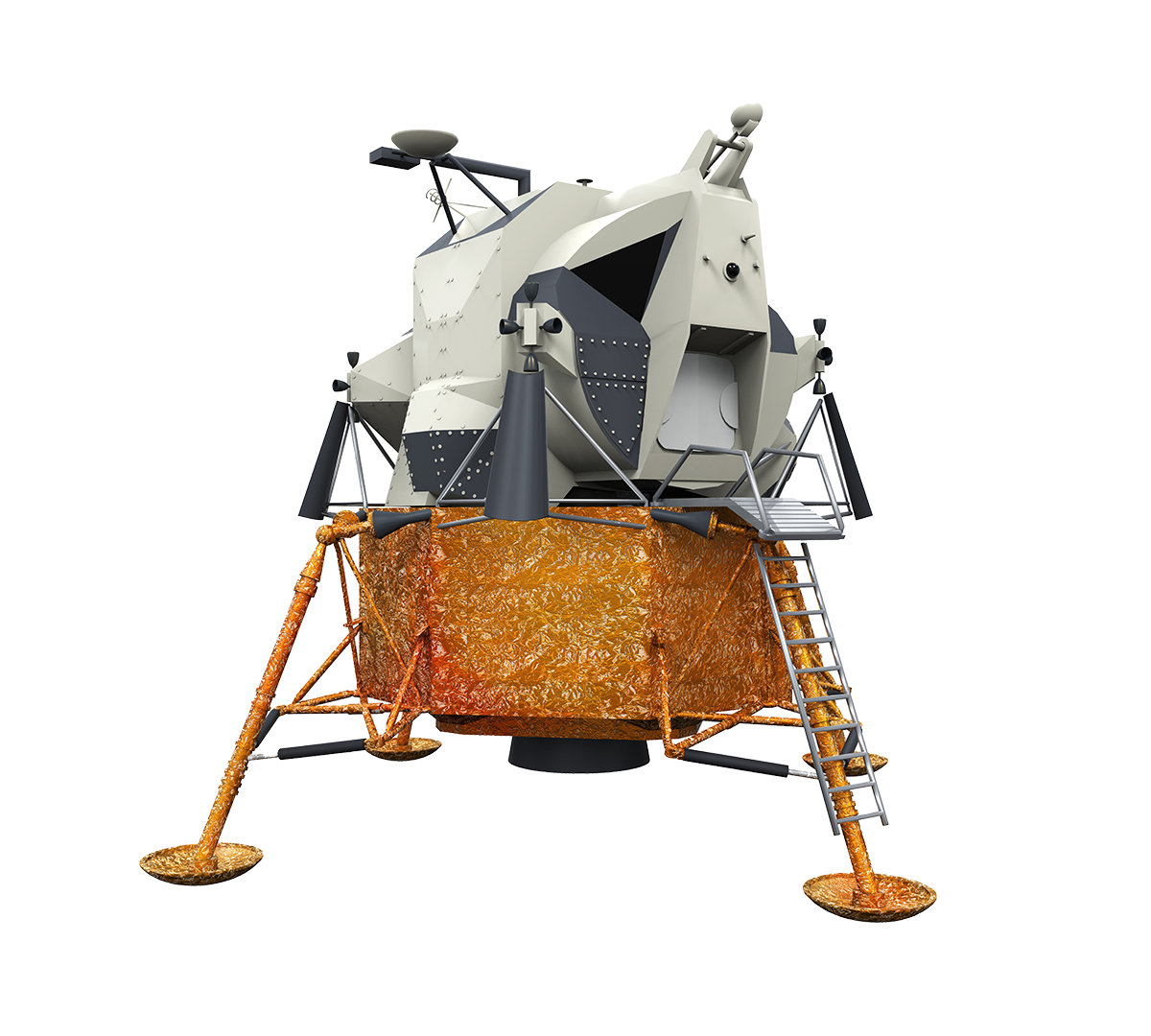When I was ten years old, I made my first trek to the U.S. Space and Rocket Center and attended Aviation Challenge on a scholarship. I also attended Summerfest and met so many amazing people involved in the space community. The following year I returned for Space Camp and my love for flight became intertwined with space exploration. Two years later, at the 2018 Space Camp Hall of Fame dinner, I met Michelle Lucas. She had created Higher Orbits - Go For Launch! for middle and high school students. Her program inspired creativity and allowed students to collaborate on an experiment that could potentially be launched to the International Space Station and researched in space. Go For Launch! became a bucket list item and I patiently waited until the program came to central Florida.
Three years later, in September of 2021, Higher Orbits - Go For Launch! finally came to Lakeland, Florida, hosted by the Aerospace Center for Excellence. I had been on the
Sun-n-Fun campus for multiple aviation events and was excited to be back. I was even more excited when I found out our guest astronaut for the weekend was Nicole Stott. Ms. Stott was one of my role models: a private pilot with a degree in engineering that went on to become an astronaut. Her missions included flying on the Space Shuttle Discovery and spending 104 days in space. Her accomplishments mirrored many of my life goals. I received permission from my Varsity Cheer Coach to miss our football game and then I was off to Lakeland to finally experience this amazing program.
Upon arrival, I found two of the students participating, Anais and Krysta, were from my hometown. I knew them from EAA and Girl Scouts. When it was time to create teams, our hometown crew was joined by Morgan and Chelsey. We named our team Andromeda, after the beautiful galaxy. Over the course of two days, our assignment was to brainstorm, research, and design an experiment that would solve a problem on Earth. We were also tasked with designing a team patch. Projects would be judged and the winners would move on to compete for a chance to have their experiment conducted on the International Space Station! Team Andromeda featured five highly competitive young women. Needless to say, there was a desire to have the best project. The stakes were high. Considering my passion for space, I was extremely excited for this opportunity.
The first few hours truly felt like a struggle for Team Andromeda. We wanted trying to come up with a unique and ISS worthy experiment. I was panicking. This was a once in a lifetime opportunity, and I wanted to give it my all. One of the project guidelines excluded anything living in our experiments, including multicellular organisms. However, single celled organisms were allowed. At this point, I was seriously hoping for some chemistry or physics angle. Then Morgan found it. Deinococcus radiodurans. An extremophile bacteria known for being extremely resistant to radiation. Radiation equaled chemistry. I could definitely work with this bacteria.
Team Andromeda had found our starting point. The research moved to the background of Deinococcus radiodurans and any previous research experiments. We learned the bacteria had been to space before, yet the experiment’s purpose was simply to study the extent of its radiation resistance capabilities and observe the bacteria’s behavior.
Then, Eureka! We found the topic of our experiment. Deinococcus radiodurans’ unique lipids have been suspected to aid in the treatment of respiratory diseases. Like most bacteria sent into space, Deinococcus radiodurans’ reproduction rate spikes in microgravity. After intense deliberation, we decided to apply this observation to our experiment. If Deinococcus radiodurans’ can withstand the intense radiation of space, and reproduce quickly, we can extract the lipids on Earth that could be used to create vaccines to treat and possibly prevent respiratory illnesses. Our primary objective was to observe and confirm that the lipids are intact and able to be used for respiratory disease research and treatment.
As the program began to wind down, each team created a powerpoint as part of their research presentation to a board of scientists, Ms. Lucas, and Ms. Stott. It was an amazing experience and win or lose, it had been a very rewarding experience researching a new topic, collaborating with a other strong personalities and creating what we believed to be a worthy experiment. It still came as a surprise and some excitement when Team Andromeda was selected as the winners for the Lakeland Higher Orbits - Go For Launch! event. We were completely ecstatic, and there was even some jumping up and down and some girl like squealing!! It was totally awesome!!!
We all returned to our busy high school lives. Over the next few months, Team Andromeda was tasked with writing a paper and answering in depth and situational questions from the scientists who were also the judges for the next round. In some ways, this was actually harder than our initial design as most of the communication with the team was done in Google Docs or email. It definitely taught some life lessons in constructive peer review, collaboration and time management. Once our paper was submitted, it felt a little surreal that a group of scientists were reviewing our experiment and research and that it might possibly make it to space. The waiting was hard. Then Ms. Lucas posted she was announcing the winners in a live feed on March 22, 2022.
Team Andromeda was selected as the winners of the 2021 Go For Launch! Series!
Over the past few months, I have been serving as the Team Andromeda Liaison with Space Tango and Go For Launch! Being a part of Team Andromeda and the Higher Orbits program was an incredibly rewarding experience. I typically gravitate toward physics and chemistry subjects. This experiment was biology based, and forced me to step outside of my comfort zone of research. I found myself spending hours of self study in biological journals just to understand some of the terms used in the research papers we referenced. In addition the educational component, I was thrilled to meet Ms. Nicole Stott, In addition to her impressive career as an engineer and astronaut, she is also a talented artist. Not only did she take her watercolors to the International Space Station to paint in space, Ms. Stott createdhe is The Space for Art Foundation, where she inspires young students to love science and space through art! I am so grateful to have met such an inspiring woman, and she remains one of my role models. I hope I can contribute to my country, serve as an astronaut, and inspire others as she does everyday.
If Higher Orbits Go For Launch! comes to a city near you or within driving distance, I enthusiastically encourage you to attend. I am so grateful to have been introduced to Ms. Lucas all those years ago and the many opportunities this experience has provided. I challenged myself academically, made meaningful connections, and was inspired to continue my pursuit of being an astronaut. All students should step out of their comfort zone, and shoot for the stars.
The Go For Launch! program allows students to do just that.
Aim high, and you just might reach the moon! Be on the lookout for news on Team Andromeda’s experiment launching in the spring of 2023!
